Friday, February 25, 2022 / 09:48 AM / by FBNQuest Research / Header Image Credit: TwentTenDaily
Our chart below is drawn from the CBN's most recent provisional data on capital importation. The data was compiled using information on banking transactions from all registered financial institutions in Nigeria. The total value of capital imported into the country in Q4 '21 increased by 26% q/q and 105% y/y to USD2.2bn. Despite the improvement, capital imports have not returned to their pre-pandemic run-rate of c.USD5.0bn/ quarter, after falling to an average of c.USD1.4bn between Q2 '20 and Q3 '21. The data are gross and not adjusted for capital exports.
Other investments which grew by c.56% y/y to USD1.2bn, mainly on the back of loans of USD1.0bn, accounted for the largest share (54%) of total capital imported in Q4. On a q/q basis, other investments increased by 192% q/q.
Portfolio investments increased to USD643m from a low of US56m in the prior year quarter. The strong growth was mostly due to a marked (3,168% y/y) rise in money market investments to c.USD559m as foreign portfolio investors elected for safe short-term instruments. However, portfolio investment declined by -47% q/q.
Foreign direct investment (FDI) rose by 43% y/y to US$358m, the highest level since Q3 '20. Their share increased to c.16% of total capital inflow compared with c.6% in Q3 '21.
In terms of capital importation by business activity, the telecommunications sector was the leading source of capital inflows into the country at USD646m, up from US30m in Q4 '20.
This is not surprising given the sizable capital expenditure of major operators in the telecommunications sector. Using MTN Nigeria which we cover as a read-across, its total capex (including intangibles) in Q4 '21 amounted to cUSD247m.
Capital inflows for the acquisition of shares, financing and trading activities were the next three top importers of capital into the country at USD360m, USD326m and USD311m respectively.
Surprisingly, Oyo state, which received c.USD2.0bn in investment inflows, accounted for c.91% of overall inflows, according to the data. Abuja and Imo were second and third, with inflows of USD171m and USD0.5m respectively.
It is widely expected that central banks in advanced economies will reduce monetary accommodation this year, resulting in a slowdown in capital inflows to emerging markets.
However, Nigeria can boost capital imports in the medium term by allowing for a more market-driven exchange rate and addressing structural concerns such as power and infrastructure, which are key bottlenecks to FDI investment.
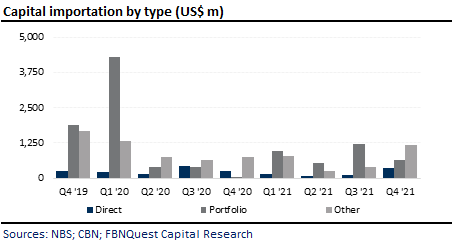
 Lagos, NG • GMT +1
Lagos, NG • GMT +1










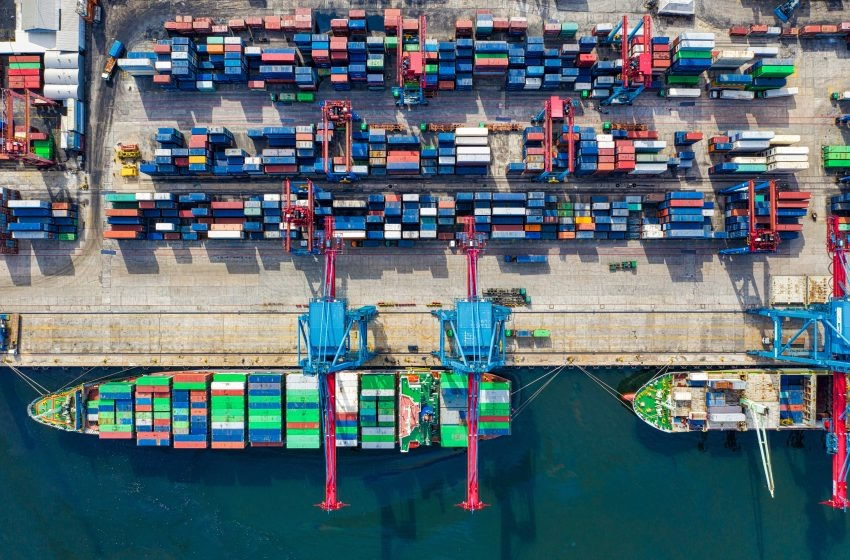
 145 views
145 views
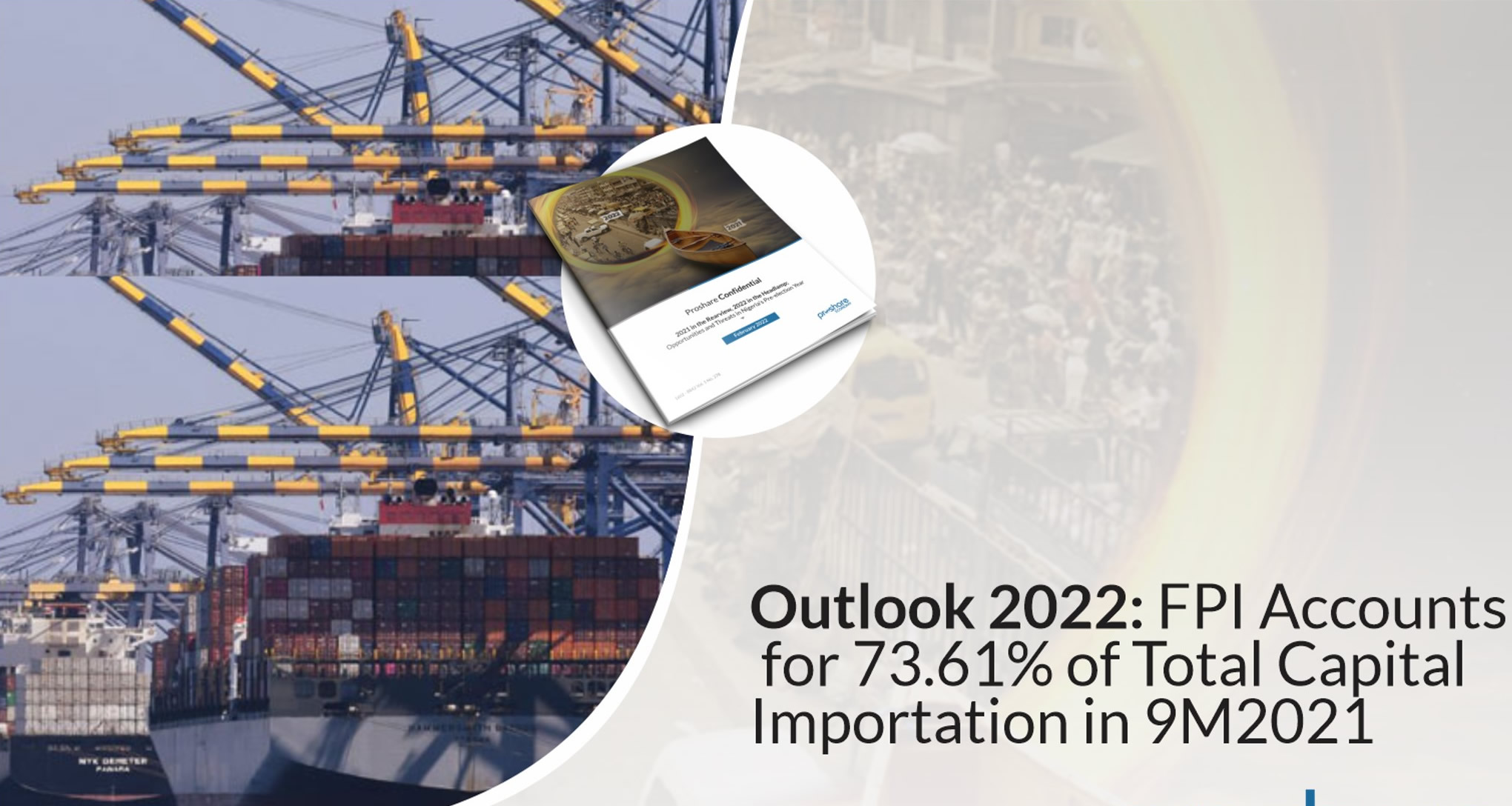


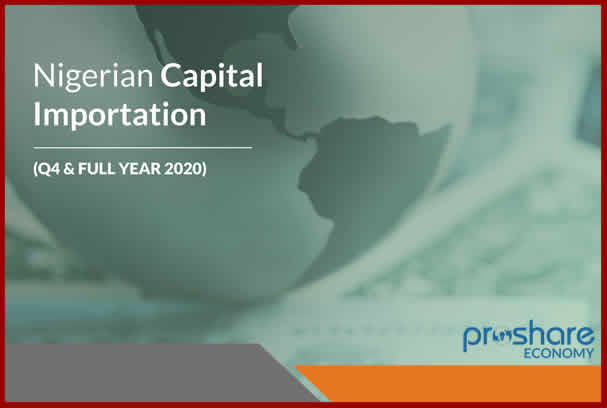
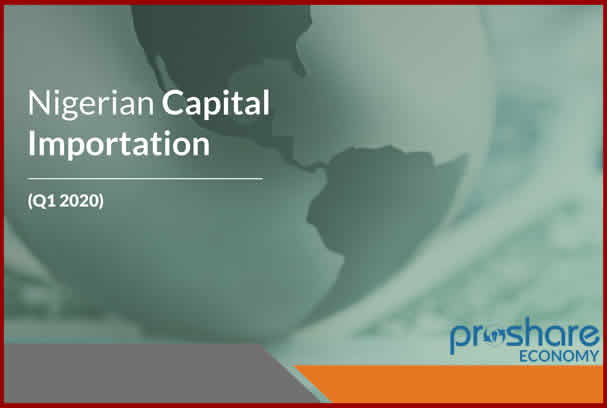





 Sponsored Ad
Sponsored Ad
 Advertise with Us
Advertise with Us







